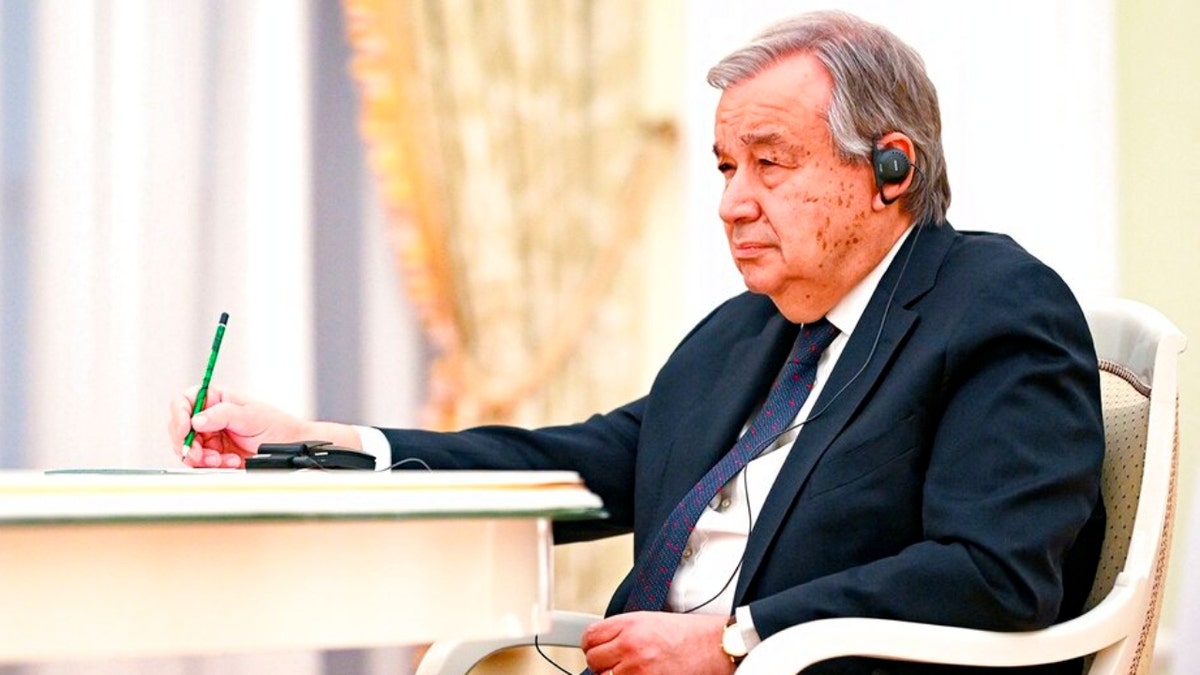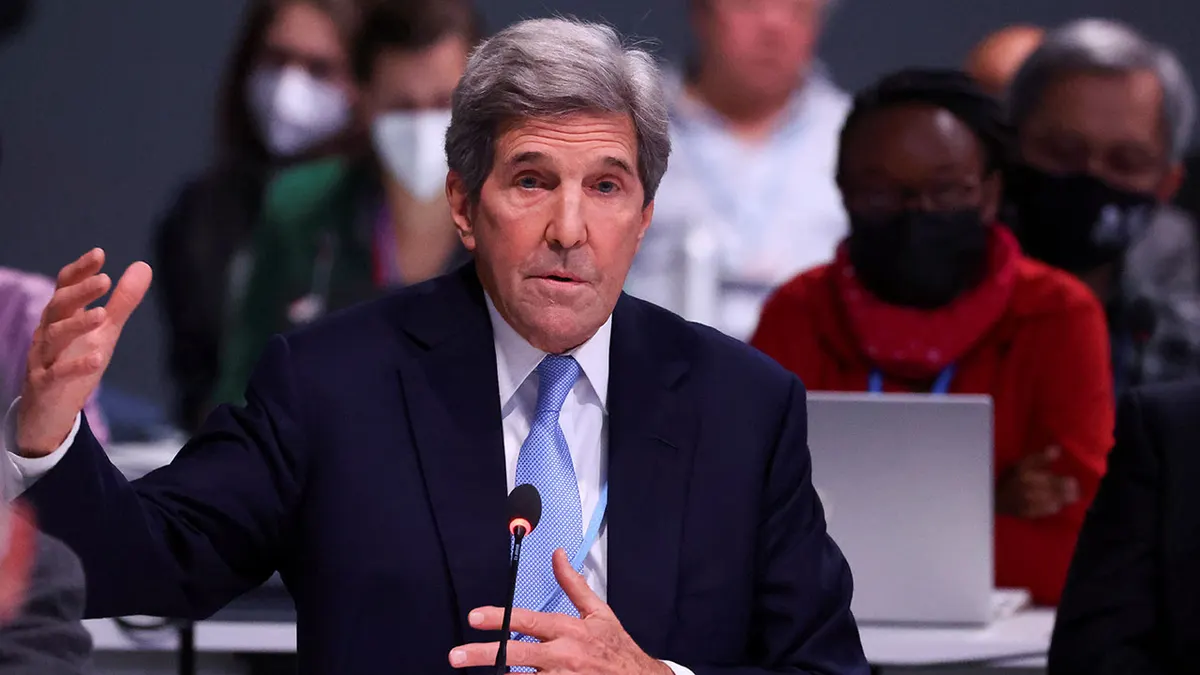Granholm says US can 'learn' from China on climate change
U.S. Department of Energy Secretary Jennifer Granholm said Americans can "learn from what China is doing" in combating climate change.
The United Nations (U.N.) published its latest climate change report Monday, which doubled down on global warming-related risks and which the intergovernmental organization dubbed a "survival guide for humanity."
The synthesis report, assembled by the Intergovernmental Panel on Climate Change (IPCC), represents the U.N.'s latest attempt to sound the alarm on the risks posed by climate change and not taking aggressive actions to halt global warming. According to the document, "unsustainable energy and land use" has caused the world to warm 1.1 degrees Celsius above pre-industrial levels, close to the 1.5-degree emergency threshold.
"The rate of temperature rise in the last half-century is the highest in 2,000 years," U.N. Secretary-General António Guterres said in a video message Monday. "Concentrations of carbon dioxide are at their highest in at least 2 million years. The climate time bomb is ticking. But today’s IPCC report is a how-to guide to defuse the climate time bomb. It is a survival guide for humanity."
"As it shows, the 1.5-degree limit is achievable. But it will take a quantum leap in climate action," he continued. "This report is a clarion call to massively fast-track climate efforts by every country and every sector and on every time frame. In short, our world needs climate action on all fronts, everything, everywhere, all at once."

U.N. Secretary-General António Guterres (Vladimir Astapkovich / Sputnik / Kremlin Pool Photo via AP / File)
The report stated that every additional increment of warming that occurs will result in "rapidly escalating hazards" for humanity.
For example, it warned that climate change will spur more intense heatwaves, heavier rainfall and other extreme risks to human health and ecosystems. And food insecurity will increase while additional conflicts and pandemics will be harder to manage, the report said.
"Mainstreaming effective and equitable climate action will not only reduce losses and damages for nature and people, it will also provide wider benefits," IPCC Chair Hoesung Lee said in a statement. "This Synthesis Report underscores the urgency of taking more ambitious action and shows that, if we act now, we can still secure a liveable sustainable future for all."
"Transformational changes are more likely to succeed where there is trust, where everyone works together to [prioritize] risk reduction, and where benefits and burdens are shared equitably," Lee added. "We live in a diverse world in which everyone has different responsibilities and different opportunities to bring about change. Some can do a lot while others will need support to help them manage the change."
JOHN KERRY'S SECRET CCP NEGOTIATIONS PROBED BY GOP OVERSIGHT CHAIRMAN
The IPCC report further called for a massive investment in clean energy and an immediate phasing out of fossil fuels across the world. The U.N. also called on Western nations to boost the amount of capital and financing they devote to climate investments.

U.S. climate envoy John Kerry attends a U.N. climate summit in Glasgow, Scotland, on Nov. 12, 2021. (Reuters / Yves Herman)
During the most recent U.N. climate conference in November, nations committed to billions of dollars worth of climate financing for developing countries and rallied to call on private investors to boost climate financing.
However, fossil fuels like coal, oil and natural gas still account for the vast majority of worldwide energy consumption, according to the latest International Energy Agency data. The three sources produce nearly 70% of all global energy and a large majority of electricity generation, which accounts for another 17% of energy produced.
CLICK HERE TO GET THE FOX NEWS APP
"Every country must be part of the solution," Guterres added Monday. "Demanding others move first only ensures humanity comes last. The ‘Acceleration Agenda’ calls for a number of other actions. Specifically, no new coal and the phasing out of coal by 2030 in OECD countries and 2040 in all other countries; ending all international public and private funding of coal."
"Ceasing all licensing or funding of new oil and gas – consistent with the findings of the International Energy Agency," he continued. "Stopping any expansion of existing oil and gas reserves; shifting subsidies from fossil fuels to a just energy transition; establishing a global phasedown of existing oil and gas production compatible with the 2050 global net-zero target."














































